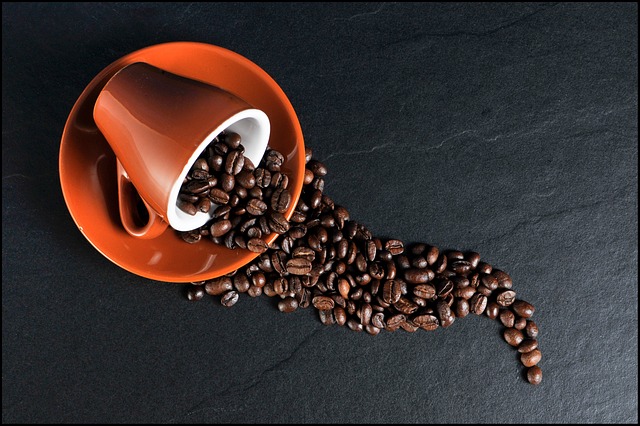We talked about which food to eat to get high-quality, restorative slumber in our previous blog. This time, to give you the complete picture, here’s a list of food to avoid if you don’t want to spend the whole night counting sheep.
Eating Before Bed: Don’t Do It
In general, it’s not recommended that you eat anything right before going to bed. This is because your body will dedicate much energy to digestion instead of the rest and restoration it should be doing while you’re asleep. More important, is the work you require your organs to perform late at night adversely affect circadian rhythm of each organ say Dr. Panda https://www.salk.edu/scientist/satchidananda-panda/
Feeling too hungry before going to sleep could also disrupt your slumber. You need to strike the right balance between being satiated until bedtime, but not being too full either. This is why it’s recommended to allow 3-4 hours between your last meal of the day and hitting the sack.
What Not to Eat Close to Bedtime
We assume that dinner (or supper) is the meal you eat closest to bedtime. But to put into consideration people who work night shifts, simply take “dinner” as the meal you eat at the end of your workday and adjust the rest accordingly.
While 7-8 hours of sleep is recommended for adults, some people may not have that luxury in their schedules. That’s why you need to maximize the sleep time you can get by making sure you cycle through the 4 stages of sleep. N3, the third stage, and REM sleep, the 4th stage, are when restoration and repair happen.
If you don’t want to spend your precious sleep time tossing and turning in bed, best avoid these sleep-interrupting food.
Coffee and Sodas
Caffeine is indeed the enemy of those who want continuous sleep. Coffee and sodas are jam-packed with this sense-heightening substance. It increases alertness, which could be fine when starting your day. However, you should avoid drinking caffeinated drinks after lunch.
Studies show that caffeine circulating in your body decreases by half every 6 hours. That means if you had a cup of coffee in the afternoon, you’d still be experiencing its effects during bedtime, making it hard to fall asleep.
Alcohol
You might wonder why alcohol is on this list when it seems like a very effective sleep-inducer. True, alcohol can indeed knock you out cold fast. The sleep it produces is also deep, which should be good, right?
Well, while alcohol can indeed give you deep sleep, studies have shown that it interrupts the REM stage of sleep. Like what we mentioned earlier, REM is part of the restorative sleep state.
Sweets
Just like caffeine, having sugary things close to bedtime will not do you good. A spike in your blood sugar gives you an energy boost. You’ll find your eyes unwilling to close beyond your planned sleeping time.
Next, the crash will come. Insulin will take control and bring down your blood sugar level, causing you to be sleepy. This slumber will be short-lived though because your body will take it as a stress signal. It will trigger the release of adrenaline and cortisol. Then, you’ll find yourself wide awake at 3am.
So if you don’t want to do a countdown to sunrise, best pass on dessert after dinner.
Complex Carbohydrates
Rice, bread, oatmeal, and starchy vegetables are examples of complex carbohydrates. There are two reasons why it’s a bad idea to eat these close to bedtime.
First, there are complex carbs with high fiber content like fresh fruits and whole grain cereal or bread. While these are actually very healthy food, they’re hard to digest because of their high fiber content.
Second, some of these complex carbs have a high glycemic index like white rice. This kind of carbs raises your blood sugar level similar to how sweets do, so your slumber will pretty much be short-lived.
Spicy and High Fat Food
If you love tacos, chili, or roast beef and steaks, bad news for you. Your favorite foods are not the best choice for dinner.
Eating spicy and fatty food close to bedtime can give you heartburn. If you do this too often, it could lead to a more serious case like acid reflux or GERD. Both of these deal with inflammation of the esophagus, which is really painful and inconvenient.
On the other hand, protein-rich food with high-fat content are difficult to digest. As we mentioned, if your digestive system is working overtime, your sleep quality will not be optimal.
Change in Tastes and Habits
Some of these food items are deeply ingrained in our daily routines, which makes it more difficult to avoid them. But if you want to reap the benefits of restful sleep, you have to make an effort one step at a time.
A good way to begin is by resetting your palate. Our 21-day organic full body cleanse will help you flush away the toxins built up and the eating protocol will give you back quality sleep. Our 30 days’ supply of professional-grade supplements will keep you satiated while you break the habit of eating these food that are bad for sleep.
In this program, you’ll also get 10 easy-to-follow exercise videos to help you sweat the toxins out. To keep you motivated and in the right mindset, we’re including 2 fitness ebooks written by former trainer to the stars, George DiGianni. You’ll also get ebook and video healthy meal recipes as well as access to expert support 7 days a week.
As Dr. Maxwell Maltz said, it takes a minimum of 21 days to break a habit. Our program is just the right length to start your journey to better sleep and better health, so buy now and get started today!
Related Topic: 4 Simple Foods to Help You Get Deep, Restful Sleep
Related Topic: 5 Things That Should be on Your Summer Food List


